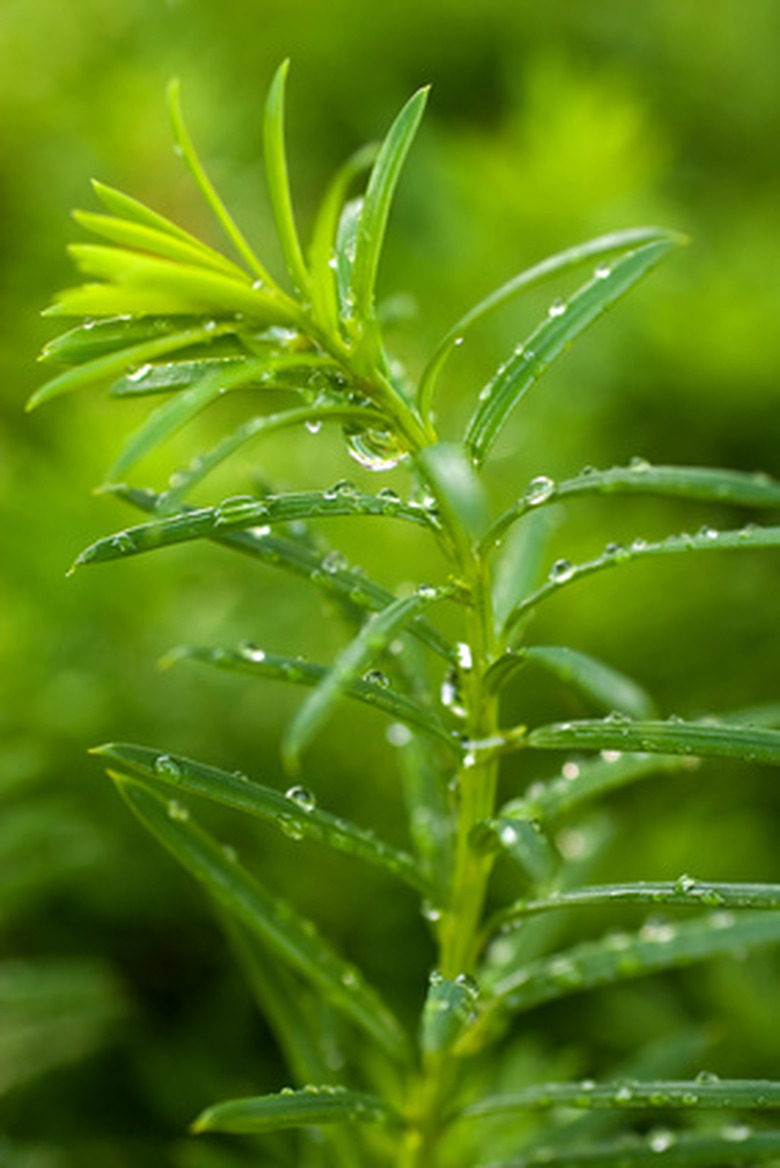Deer Resistant Juniper
Juniper is a member of the cypress family. Deer resistant varieties of juniper have one or more specific characteristics that make them resistant. Deer have a sensitive sense of smell and do not like plants with a heavy fragrance (which juniper has). The sharp needles of the juniper will discourage them after one bite, and the bitter taste of the bark will also stop them from browsing the plant.
Types
Chinese juniper (Juniperus chinensis) is a native of China, Mongolia and Japan. Rocky Mountain juniper is also known as Western red cedar and red cedar, and is native to Western North America. Singleseed juniper (Juniperus squamata) is also known as flaky juniper, and is native to the Himalayan Mountains in Afghanistan and western China
- Juniper is a member of the cypress family.
- Chinese juniper (Juniperus chinensis) is a native of China, Mongolia and Japan.
Features
Chinese juniper grows from 50 to 70 feet tall and 20 feet wide. The tree produces wedge-shaped needles with sharp points on young growth. Adult leaves are diamond-shaped, lie flat on the stems and overlap each other. The plant will have either male or female cones. Rocky Mountain juniper grows up to 50 feet tall, with young leaves in the form of needles and older leaves that grow close to the twigs and overlap each other. The tree will have either male or female cones.
Singleseed juniper grows as a ground cover, shrub or tree, with short, silver-blue or gray needles featuring sharp points and black fruit that remains on the plant for two years.
- Chinese juniper grows from 50 to 70 feet tall and 20 feet wide.
- Singleseed juniper grows as a ground cover, shrub or tree, with short, silver-blue or gray needles featuring sharp points and black fruit that remains on the plant for two years.
Climate
Chinese juniper is hardy in USDA Hardiness Zones 3 to 9, all but the very coldest and hottest zones. Rocky Mountain juniper is hardy in USDA Zones 4 to 7. Singleseed juniper is hardy in USDA Zones 4 to 8.
Environment
Plant Chinese juniper in full sun and moist, well-drained soil. Plant Rocky Mountain juniper in full sun and soil that is moist, loose and well drained. The plant does not like humidity, but loves dry heat. Singleseed juniper grows in full sun or partial shade and moist to dry, well-drained soil.
- Chinese juniper is hardy in USDA Hardiness Zones 3 to 9, all but the very coldest and hottest zones.
- Plant Rocky Mountain juniper in full sun and soil that is moist, loose and well drained.
Uses
Chinese juniper is used for bonsai, and there are small varieties that grow as shrubs and ground covers as well as the taller trees. Rocky Mountain juniper is used as a hedge, accent plant or border. Small, upright varieties of singleseed juniper grow in rock gardens, spreading versions as ground covers, shrubs as informal hedges and trees as specimen plants.
